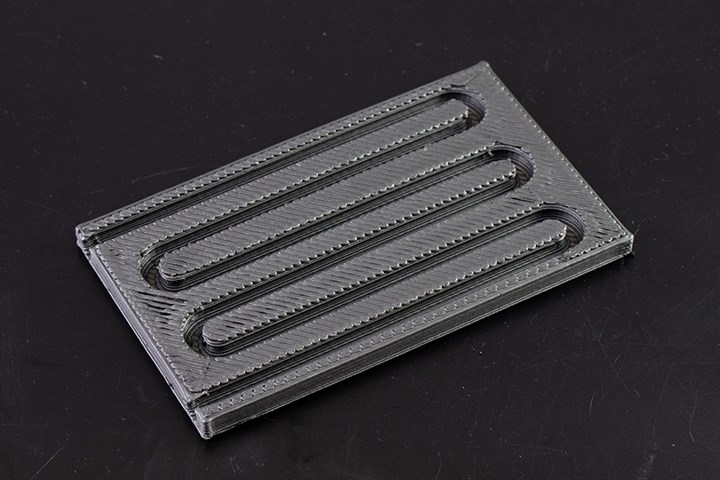TCPoly thermal conductive filaments for 3D printing
The Ice9 product offerings are composed of carbon-based fillers and ceramic filler parts.

Source | TCPoly
Thermal solutions provider, (Atlanta, GA, U.S.) features the developments of its TCPoly Ice9 thermally conductive filaments, the first heat-conducting plastics for open source FDM 3D printers. Composed of a mix of carbon-based fillers and ceramic filler particles, the 3D printing filaments are said to retain a thermal conductivity up to 50 times higher than standard filaments (10 W/mK), such as Acrylonitrile-butadiene-styrene (ABS), polylactide (PLA), Nylon, PETG. When combined with the design freedom of 3D printing, TCPoly says its filaments can be used to make high-performance heat transfer products for electronics thermal management, heat exchangers, mold tooling and other industries.
TCPoly offers three varying Ice9 filament products. Flex (TPE), said to have the highest thermal conductivity at 8 W/mK and high toughness, is available in electrically insulated grades. Retaining a tensile strength of 15 MPa, maximum temperature use holds at 110ºC. Rigid (PA6) is a nylon-based filament with the second highest thermal conductivity at 4 W/mK, a tensile strength of 30 MPa and overall high modulus and temperature stability. Finally, Aero (PEKK), in addition to its thermal conduction of 2.5 W/mK, is flame-retardant with a temperature stability above 250ºC and a tensile strength of 100 MPa.
Related Content
-
Cutting 100 pounds, certification time for the X-59 nose cone
Swift Engineering used HyperX software to remove 100 pounds from 38-foot graphite/epoxy cored nose cone for X-59 supersonic aircraft.
-
Carbon fiber composite pallet revolutionizes freight industry
LOG Point Pallet fuses advanced materials with innovative design and manufacturing to improve supply chains worldwide.
-
Revisiting the OceanGate Titan disaster
A year has passed since the tragic loss of the Titan submersible that claimed the lives of five people. What lessons have been learned from the disaster?



